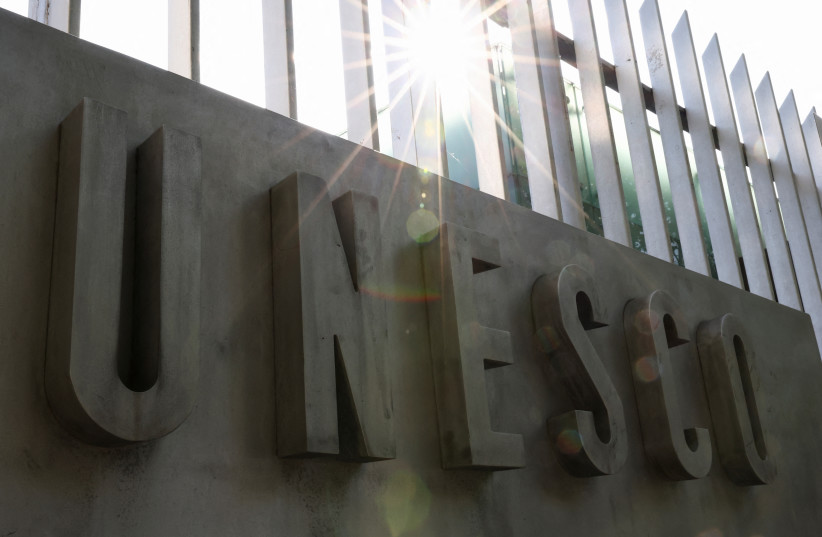UNESCO member states give green light to US return, Blinken says
UNESCO’s member states backed the United States’ return to the United Nations’ cultural organization almost five years after then-President Donald Trump ordered an American withdrawal, US Secretary of State Antony Blinken said on Friday.
“I am encouraged and grateful that today the (UNESCO) membership accepted our proposal, which will allow the United States to take the next, formal steps toward fully rejoining the organization,” Blinken said in a statement.
UNESCO – the United Nations Educational, Scientific and Cultural Organization – is best known for designating and protecting archaeological and heritage sites, from the Galapagos Islands to the tombs of Timbuktu.
Trump withdrew the US from the Paris-based organization in 2018 over accusations of anti-Israel bias and mismanagement. Most of UNESCO’s activities are not controversial – but issues such as resolutions about how religious sites should be run in Jerusalem have been highly charged.
UNESCO’s director-general, Audrey Azoulay, has said those issues were now a thing of the past after finding consensus between Israeli and Palestinians.
 A UNESCO sign is seen at the UNESCO headquarters, on the day of the opening of the second session of negotiations around a future treaty on tackling plastic pollution, in Paris, France, May 29, 2023. (credit: STEPHANIE LECOCQ/REUTERS)
A UNESCO sign is seen at the UNESCO headquarters, on the day of the opening of the second session of negotiations around a future treaty on tackling plastic pollution, in Paris, France, May 29, 2023. (credit: STEPHANIE LECOCQ/REUTERS)The US State Department indicated in a letter dated June 8 that it wanted to rejoin UNESCO in July as a full member and that it intended to repay $619 million in arrears in installments over several years.
The member states approved the US return at an extraordinary session this week, Blinken said on Friday.
Why did the United States leave UNESCO?
The 2018 pullout by the United States – which had provided a fifth of UNESCO’s funding – threw the organization into turmoil.
Israel also pulled out of UNESCO following Washington’s departure. At this stage, there are no negotiations for its return, Azoulay has said.
US law forbids Washington from funding UN bodies that have admitted Palestine as a full member. The American return to UNESCO was enabled after a waiver from Congress earlier this year, which will be in effect until the end of 2025.
UNESCO was founded in the ashes of World War Two to protect humanity’s common cultural inheritance.





Comments are closed.